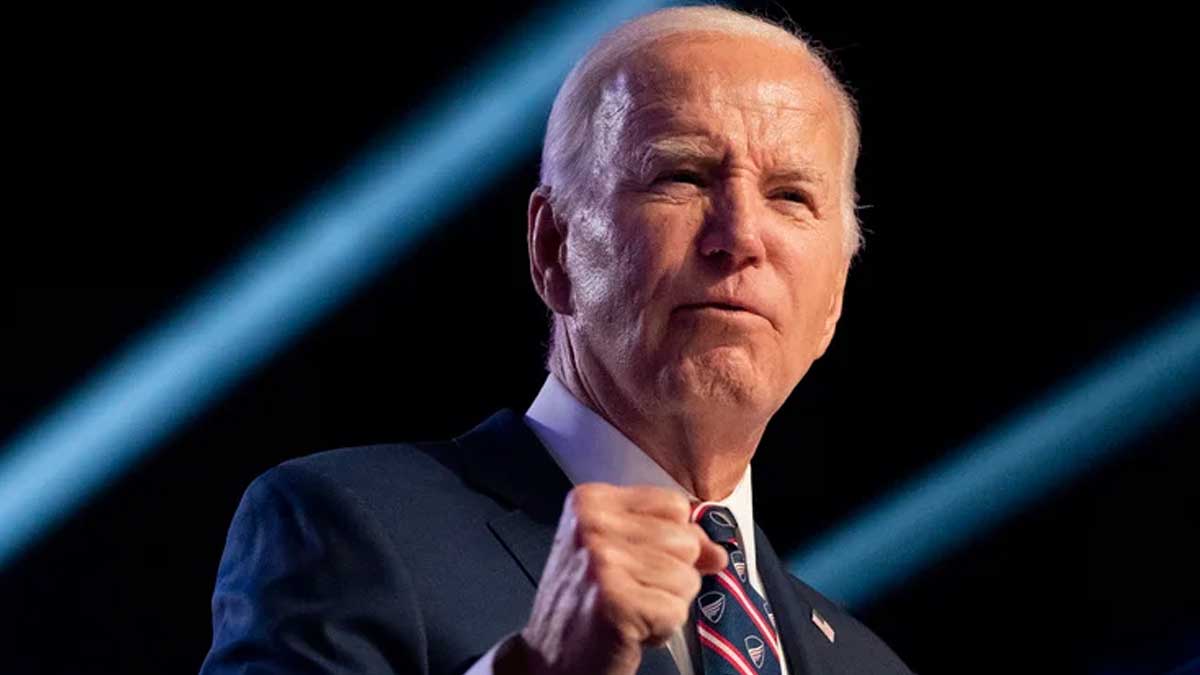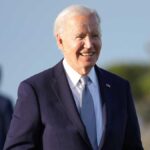- Home
- Billionaires
- Investing Newsletters
- 193CC 1000
- Article Layout 2
- Article Layout 3
- Article Layout 4
- Article Layout 5
- Article Layout 6
- Article Layout 7
- Article Layout 8
- Article Layout 9
- Article Layout 10
- Article Layout 11
- Article Layout 12
- Article Layout 13
- Article Layout 14
- Article Sidebar
- Post Format
- pages
- Archive Layouts
- Post Gallery
- Post Video Background
- Post Review
- Sponsored Post
- Leadership
- Business
- Money
- Small Business
- Innovation
- Shop
Recent Posts
Biden Ends 2024 Campaign, Endorses Harris as Successor

President Joe Biden announced on Sunday that he is withdrawing from the 2024 presidential race and endorsing Vice President Kamala Harris as his successor. In his resignation letter, Biden stated his decision was made with the belief that stepping aside would be in the best interest of both his party and the country. He expressed his intention to concentrate solely on his presidential duties for the remainder of his term. Following his announcement, Biden promptly endorsed Harris, praising her as the “best decision I’ve made” and offering her his “full support.” His departure comes after significant pressure from over three dozen Democratic Congress members and behind-the-scenes efforts by Democratic leaders to persuade him to step down.
Biden has faced scrutiny for months regarding his age and ability to serve another term. However, his performance during the June 27 debate—marked by confusion, disjointed responses, and a notably weak voice—sparked widespread criticism from media outlets, celebrities, donors, and fellow Democrats. This backlash played a crucial role in his decision to exit the race. Biden’s withdrawal at this late stage in the election cycle is unprecedented in modern political history and sets the stage for a rapid selection of his replacement. The Democratic Party is scheduled to hold a virtual roll call to officially select its nominee between August 1 and August 7, ahead of its convention on August 19. Although Ohio’s law requiring nominees to be confirmed 90 days before the election has been revised, the changes will not take effect until September 1, prompting Democrats to proceed with their early nomination plans.
The selection of a new candidate will be determined by approximately 4,700 Democratic delegates through a majority vote. While about 4,000 delegates were previously pledged to Biden, his withdrawal releases them from this commitment. The remaining 700 “unpledged” delegates, also known as superdelegates, can vote for any candidate they choose and will participate in a second round of voting if no candidate secures a majority in the first round. An open convention would occur if multiple candidates are presented to delegates and Biden has not endorsed a specific replacement, allowing his delegates the freedom to vote for any contender.
The process for selecting Biden’s replacement is still unclear. Some have proposed a “mini-primary,” involving a series of campaign events—such as debates and interviews—among potential candidates before delegates cast their votes. Rep. James Clyburn (D-S.C.) has indicated support for Harris as the nominee if Biden withdrew, but he also suggested the possibility of a “mini-primary” to explore other candidates. This idea has been supported by New York Times columnist Ezra Klein and Democratic consultant James Carville.
Harris is the leading contender, but other names frequently mentioned include California Governor Gavin Newsom, Illinois Governor J.B. Pritzker, Michigan Governor Gretchen Whitmer, Colorado Governor Jared Polis, and Pennsylvania Governor Josh Shapiro. Previous Democratic candidates such as Transportation Secretary Pete Buttigieg and Senators Cory Booker (D-N.J.) and Amy Klobuchar (D-Minn.) are also potential options. To date, no potential candidates have publicly expressed interest in the 2024 nomination. Polling data indicates that Harris, similar to Biden, performs slightly better than other potential replacements but still lags behind Trump. A mid-July YouGov poll found Biden trailing Trump by two points and Harris by three points, while a Reuters/Ipsos poll showed both Biden and Harris in a tight race with Trump. A CNN/SSRS poll conducted shortly after the debate showed Harris outperforming Biden and other potential replacements in hypothetical matchups against Trump, although she would still lose by two points.
Before Biden’s announcement, several prominent Democrats had already endorsed Harris as a strong candidate to replace him. Clyburn believes Harris would perform well at the top of the ticket and that the party should support her candidacy. Despite this, Harris has faced criticism for her relatively low approval ratings and her perceived absence from the public eye. Her record as a prosecutor has also been a point of contention among progressives, though she has recently supported Biden’s decisions on criminal justice reform, including the pardoning of federal marijuana convictions. Former Representative Tim Ryan (D-Ohio) has defended Harris, praising her as “brilliant, compassionate, engaging, funny, and totally down to earth,” and suggesting she has the ability to energize the electorate and govern effectively.
Former President Donald Trump responded to Biden’s announcement with a scathing post on Truth Social, claiming, “Crooked Joe Biden was not fit to run for President, and is certainly not fit to serve – And never was!”
Recent Posts
Categories
- 193cc Digital Assets2
- 5G1
- Aerospace & Defense46
- AI37
- Arts3
- Banking & Insurance11
- Big Data3
- Billionaires449
- Boats & Planes1
- Business328
- Careers13
- Cars & Bikes76
- CEO Network1
- CFO Network17
- CHRO Network1
- CIO Network1
- Cloud10
- CMO Network18
- Commercial Real Estate7
- Consultant1
- Consumer Tech180
- CxO1
- Cybersecurity68
- Dining1
- Diversity, Equity & Inclusion4
- Education7
- Energy8
- Enterprise Tech29
- Events11
- Fintech1
- Food & Drink2
- Franchises1
- Freelance1
- Future Of Work2
- Games141
- GIG1
- Healthcare78
- Hollywood & Entertainment186
- Houses1
- Innovation42
- Investing2
- Investing Newsletters4
- Leadership65
- Lifestyle11
- Manufacturing1
- Markets20
- Media193
- Mobile phone1
- Money13
- Personal Finance2
- Policy567
- Real Estate1
- Research6
- Retail1
- Retirement1
- Small Business1
- SportsMoney33
- Style & Beauty1
- Success Income1
- Taxes2
- Travel10
- Uncategorized8
- Vices1
- Watches & Jewelry2
- world's billionaires418
Related Articles
Trump Moves $4B Stake in Truth Social Parent, Stock Drops 6%
Donald Trump recently transferred his 57% stake in Trump Media & Technology...
By 193cc Agency CouncilDecember 20, 2024House Rejects Trump-Backed Funding Bill, Shutdown Looms
The U.S. House of Representatives rejected a new government funding bill on...
By 193cc Agency CouncilDecember 20, 2024Trump Named Time’s Person of the Year for Second Time
On Thursday, Time magazine honored Donald Trump as its “Person of the...
By 193cc Agency CouncilDecember 12, 2024Meta Donates $1 Million to Trump’s Inaugural Fund
Meta, the parent company of Facebook and Instagram, has confirmed a $1...
By 193cc Agency CouncilDecember 12, 2024















Leave a comment